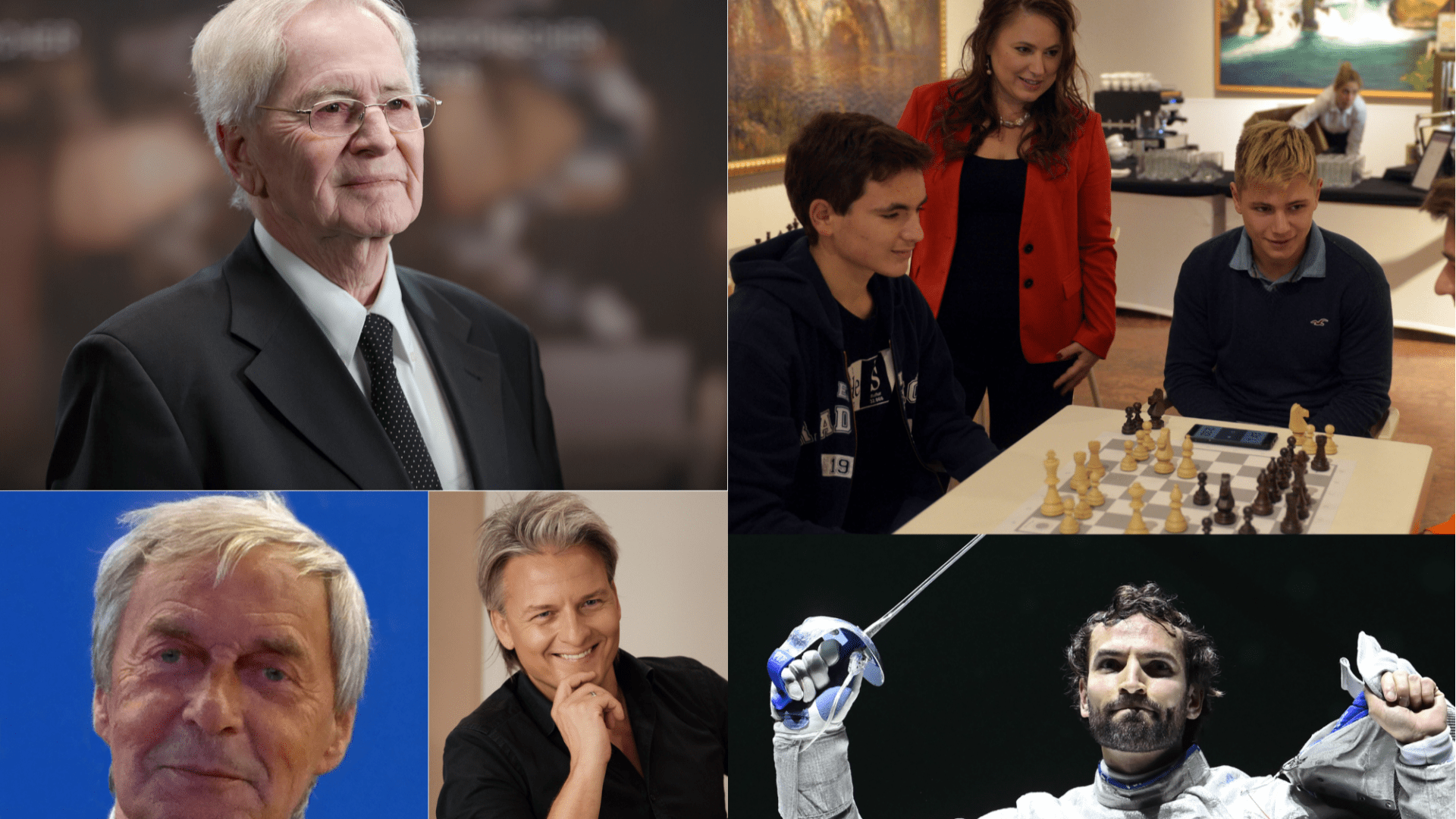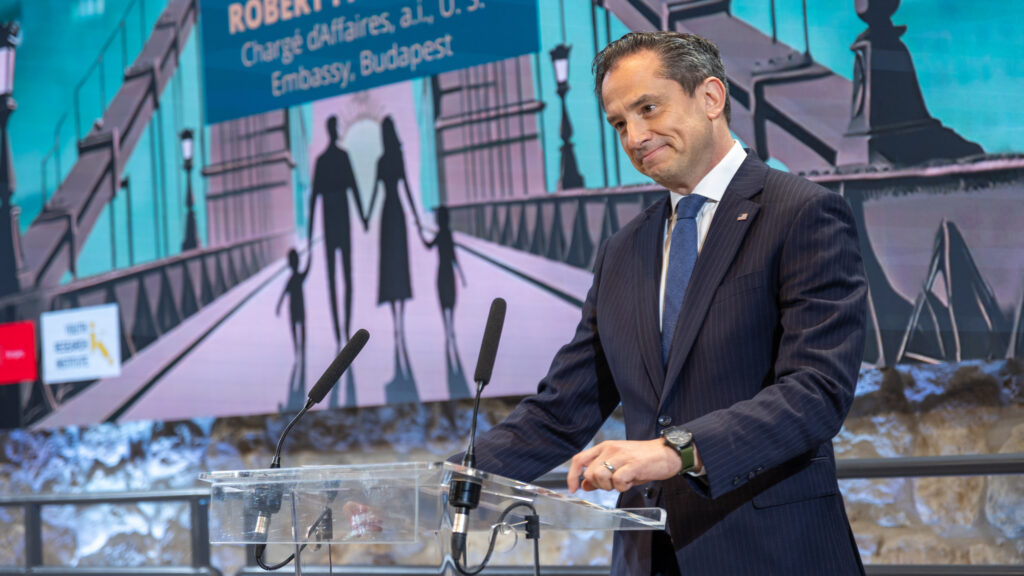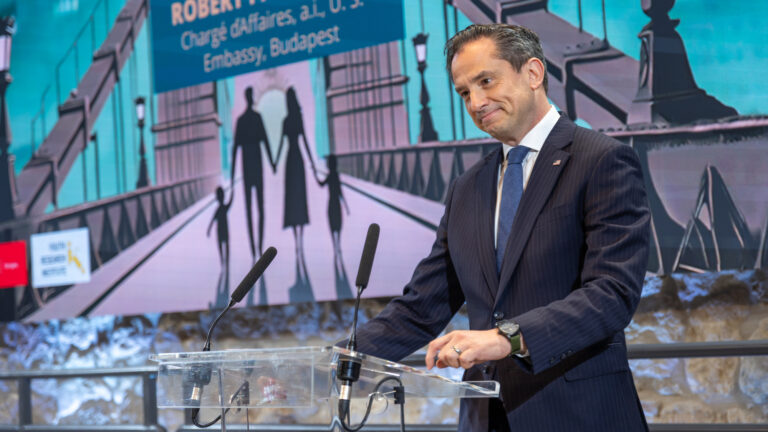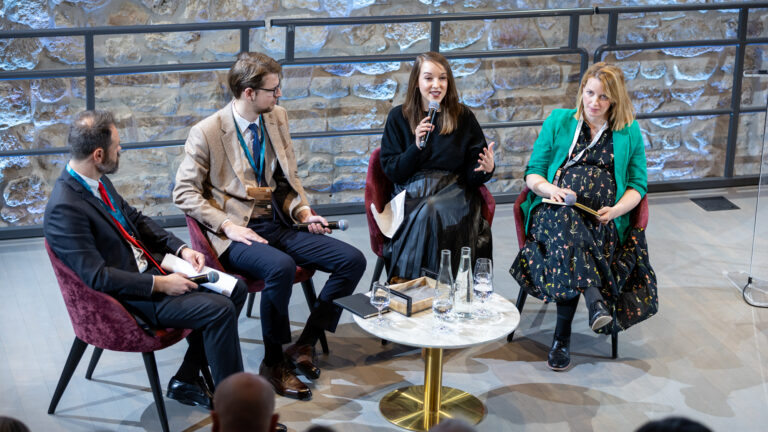Hungary has given many fascinating talents to the world who have enriched our civilisation with inventions, ideas and art. While our great Hungarian forebears are often commemorated and exalted, and rightly so, exceptional contemporary Hungarians who build the reputation of the country should not go unnoticed either. While the list below of Hungarians who attained something no one has ever done before is far from complete, and there are of course many other Hungarians who have achieved great things over the last couple of decades, the following five figures are definitely amongst the finest of today’s Hungarians.
Music — Pianist Balázs Havasi
Balázs Havasi is a Budapest-born pianist and composer. He is involved in different musical projects from composing for symphony orchestra to writing music for rock drums as well as for piano. Balázs Havasi’s international reputation spread very fast from Hungary after he appeared on the music scene. One of his videos on YouTube, The Road that was recorded in 18 locations across three countries was watched by over 30 million people. Havasi performed at the Shanghai World Expo Center, and his concert was aired by the Chinese Central Television, reaching over 200 million viewers. He has performed at such prestigious locations as Trieste’s Verdi Theatre, the Wiener Stadthalle in Vienna, and the Sydney Opera House. He was the first Hungarian to headline a concert at the Wembley Arena while he also performed at The Barbican in London and at the Dubai Opera. One of his latest hits are two 2022 performances at the iconic guitar shaped hotel, the Seminole Hard Rock Hotel & Casino Hollywood. The Hard Rock Hotel has a luxurious 7,000-seat theatre where earlier international music giants such as Metallica, Guns N’ Roses as well as Rolling Stones performed. Havasi was not only the first Hungarian, but
the first European to have performed in the prestigious American hotel
constructed in 2018.
HAVASI – The Storm
No Description
One of the specialities of Havasi’s music is that it plays with folk motives, too, integrating old melodies into a contemporary musical setting. In a 2022 interview Havasi explained that using Hungarian folk elements had always been his dream: ‘Even twenty years ago, I already had an idea that in the same way Hollywood movies made the Irish flute popular, we can do it with Hungarian folk music elements. That can make us special, different from the rest. We do not complain about the fact that we are a small country, but turn it into an advantage.’
Chess — Genius Grandmaster Judit Polgár
Judit Polgár, the Olympic champion and international grandmaster has received the women’s Chess Oscar seven times, including the female Chess player of the century award. She is known to be the best female chess player in history, as she is
the only one woman in history who managed to collect more than 2,700 Élő points.
The Élő rating system, widely used to calculate the skill level of players, was also created by a Hungarian American, Árpád Élő. At the peak of her career, she had 2,735 Élő points, thereby ranking 8th in the world. She led the women’s chess world ranking from the age of 12 until 2015 (she retired from active racing in 2014). She was the youngest player to enter the FIDE top 100, reaching ranking 55 at the age of 12, while two years later, she was awarded the title of a grandmaster. In 2015, she received the Grand Cross of the Order of Saint Stephen of Hungary, the highest Hungarian state award. She was also introduced to the World Chess Hall of Fame. Two of her sisters, Zsuzsa and Zsófia are also professional chess players, and grandmasters among women.

In a recent interview Polgár said: ‘Since I started playing chess at the age of five, chess is like my mother tongue: it has completely permeated my thinking. There are many things that I learned on the chessboard, and then this knowledge was incorporated into my life, my everyday life…chess taught me to be able to accept things, to make good decisions, to be flexible, to think strategically and to manage my time well; and last but not least, it also taught me the importance of communication and self-confidence.’
Innovation — Inventor Ernő Rubik
The Hungarian inventor, who will soon celebrate his 79th birthday, is mostly known for designing the Rubik’s cube. Enrő Rubik studied sculpture and architecture at university, and became a professor of design. He was very interested in designing geometric models, which prompted him to produce the first prototype of the famous puzzle. Apparently, despite being the puzzle’s inventor, it took him a month to solve the problem of the cube the first time.

Very soon after the Rubik’s Cube entered the market, over 100 million were sold,
with the cube becoming an unprecedented world success. Since then, dozens of books have been written about how to solve the puzzle, while Rubik himself moved on to designing new mechanical puzzles. At the very beginning of the cube’s popularity, Ernő Rubik, a very humble man in his personal life, insisted on calling the Cube Magic Cube instead of Rubik’s Cube, but it was a futile effort and his name has now been forever associated with his great invention. His late work is mostly focusing on promoting science and mathematical education as well as problem solving among young children. During the pandemic, he has published a book about the Cube, which was translated to dozens of languages in a matter of months. In a recent interview promoting the book, he said: ‘The real miracle of the Cube is that it connects us regardless of culture, social status, language, age and gender. Basic human curiosity, the need to solve problems, makes anyone who picks the cube up want to play.’
Film Industry — Director István Szabó
No Title
No Description
The film director, who recently turned 85, is probably the best-known Hungarian-speaking director in the world. Mephisto (1981), which secured him his greatest international success, is
the first and one of the few Hungarian feature films to have been awarded the Oscar
in the best foreign language film category. Mephisto is based on Klaus Mann’s book, which demonstrates through the life of an ambitious young actor how high culture can fall prey to evil ideologies such as National Socialism. In most of his works, Szabó prefers to choose Hungarian locations for filming and relies on Hungarian talents when selecting his actors. His other acclaimed films include Colonel Redl (1985), Sunshine (1999) and The Door (2012). While he is a nationally recognised director, who has been elected to the elite, state-sponsored group of the Nation’s Artists (a Nemzet Művésze). Although in 2006 a major controversy developed when he he admitted that he had been collaborating with the Communist regime before 1989 as an informant to the regime’s secret police, his artistic genius has never been disputed.
Sport — Fencer Áron Szilágyi
Szilágyi collected his first gold medal at the age of 17 at the 2007 FIE World Championships in St Petersburg. He got a taste of the Olympic gold for the first time in 2012 in London, where he entered the competition as the third best male fencer in the world. His victory yielded Hungary’s first individual sabre gold since a victory in Barcelona in 1992. He was made instantly the Honorary Citizen of Budapest, while he was also presented with the Hungarian Order of Merit. Four years later, he arrived in Rio as Hungary’s flag carrier at the opening ceremony. In 2016, when he retained his Olympic sabre title, he became the fifth fencer to win back-to-back individual gold medals since 1896. With this, he became the number one fencer in the world. The year 2020 brought about similar successes for Szilágyi, as the athlete won an Olympic gold medal for the third time in a row that year.
The victory made him the only male fencer in history to win three individual Olympic gold medals.
Szilágyi is also known for his honourable sport morale. He was recently awarded with Fair Play Award. His opponent, who was winning against him, scored a point which was not correctly recorded. To give his opponent the chance to keep his duly claimed point, in the next round Szilágyi just stepped forth without even lifting his weapon, allowing his opponent to score. His surprised opponent thanked for his kindness with a hug and applaud. Eventually Szilágyi won the competition, preserving his title as the world’s best.
Szilágyi Áron: Famous – An Epic Sabre Compilation
A compilation video in honour of a tournament that never was. Everyone who’s been nagging about another Szilágyi video, well, here it is. Music is “Famous” by Taemin. If you have a problem with it, you can fight me 😘








